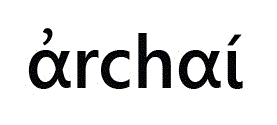Abstract:
Plato seeks to establish in Phaedrus a close link between poetry and the eidetic sphere to which philosophical knowledge belongs, or which the philosopher accesses through a practiced synoptic-dialectic understanding. This type of philosophical poetry is perfectly illustrated in the Socratic palinode itself, which Socrates -and ultimately Plato - establishes as a paradigm of the poet philosopher, a palinode by necessity must be uttered “with certain poetic terms”. Working from that palinode as a model, Plato seeks to approach the subject of éros with philosophical discourses fed with poetical terms, that is, through an explicit blend of philosophical and poetic elements, the clearest example of which is the Phaedrus as a whole, or, in more general terms, the Platonic dialogical genre in as much as this puts forward an interaction between the philosophical and poetic registers. Taking into account this relationship of compatibility that Plato establishes in Phaedrus between the poetic-philosophical paradigm and the traditional paradigm - which in books I, III and X of the Republic clearly appeared in tension-in this paper I’m interested in supporting such a relationship in the dream anecdote as told by Socrates at the start of the Phaedo. In this anecdote, the philosopher confesses to Simmias and Cebes that since his time in prison, although he had never done such a thing before before, he has been composing poems based on the versification and musicalization of Aesop’s fables and a hymn to Apollo.
Keywords:
poetry; philosophy; paradigm; dream; anecdote
